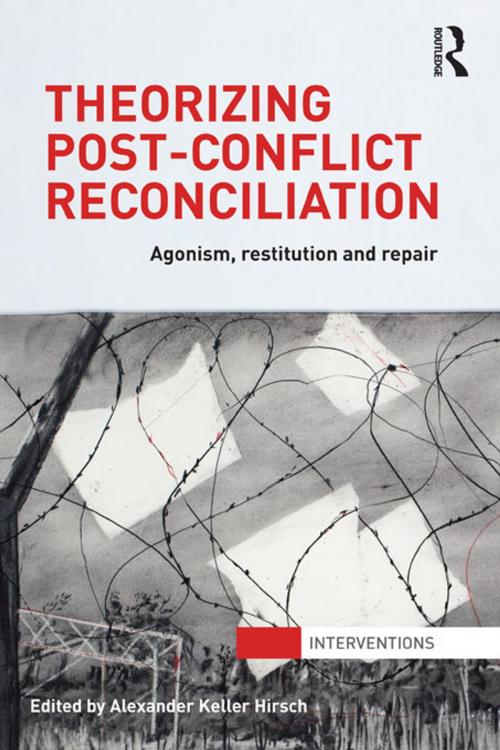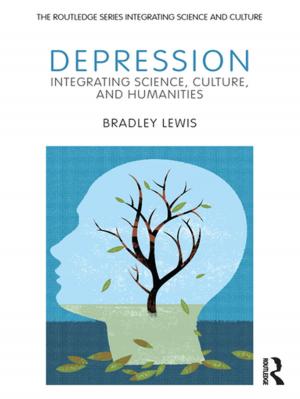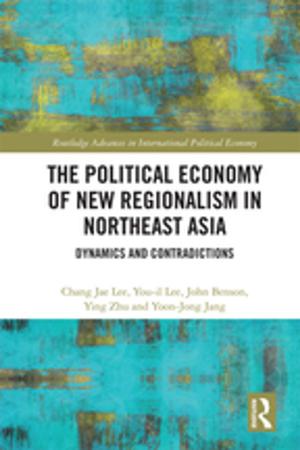Theorizing Post-Conflict Reconciliation
Agonism, Restitution & Repair
Nonfiction, Social & Cultural Studies, Political Science, Politics, City Planning & Urban Development, History & Theory| Author: | ISBN: | 9781136503375 | |
| Publisher: | Taylor and Francis | Publication: | June 17, 2013 |
| Imprint: | Routledge | Language: | English |
| Author: | |
| ISBN: | 9781136503375 |
| Publisher: | Taylor and Francis |
| Publication: | June 17, 2013 |
| Imprint: | Routledge |
| Language: | English |
The founding of truth commissions, legal tribunals, and public confessionals in places like South Africa, Australia, Yugoslavia, and Chile have attempted to heal wounds and bring about reconciliation in societies divided by a history of violence and conflict.
This volume asks how many of the popular conclusions reached by transitional justice studies fall short, or worse, unwittingly perpetuate the very injustices they aim to suture. Though often well intentioned, these approaches generally resolve in an injunction to "move on," as it were; to leave the painful past behind in the name of a conciliatory future. Through collective acts of apology and forgiveness, so the argument goes, reparation and restoration are imparted, and the writhing conflict of the past is substituted for by the overlapping consensus of community. And yet all too often, the authors of this study maintain, the work done in assuaging past discord serves to further debase and politically neutralize especially the victims of abuse in need of reconciliation and repair in the first place.
Drawing on a wide range of case studies, from South Africa to Northern Ireland, Bosnia, Rwanda and Australia, the authors argue for an alternative approach to post-conflict thought. In so doing, they find inspiration in the vision of politics rendered by new pluralist, new realist, and especially agonistic political theory.
Featuring contributions from both up and coming and well-established scholars this work is essential reading for all those with an interest in restorative justice, conflict resolution and peace studies.
The founding of truth commissions, legal tribunals, and public confessionals in places like South Africa, Australia, Yugoslavia, and Chile have attempted to heal wounds and bring about reconciliation in societies divided by a history of violence and conflict.
This volume asks how many of the popular conclusions reached by transitional justice studies fall short, or worse, unwittingly perpetuate the very injustices they aim to suture. Though often well intentioned, these approaches generally resolve in an injunction to "move on," as it were; to leave the painful past behind in the name of a conciliatory future. Through collective acts of apology and forgiveness, so the argument goes, reparation and restoration are imparted, and the writhing conflict of the past is substituted for by the overlapping consensus of community. And yet all too often, the authors of this study maintain, the work done in assuaging past discord serves to further debase and politically neutralize especially the victims of abuse in need of reconciliation and repair in the first place.
Drawing on a wide range of case studies, from South Africa to Northern Ireland, Bosnia, Rwanda and Australia, the authors argue for an alternative approach to post-conflict thought. In so doing, they find inspiration in the vision of politics rendered by new pluralist, new realist, and especially agonistic political theory.
Featuring contributions from both up and coming and well-established scholars this work is essential reading for all those with an interest in restorative justice, conflict resolution and peace studies.















